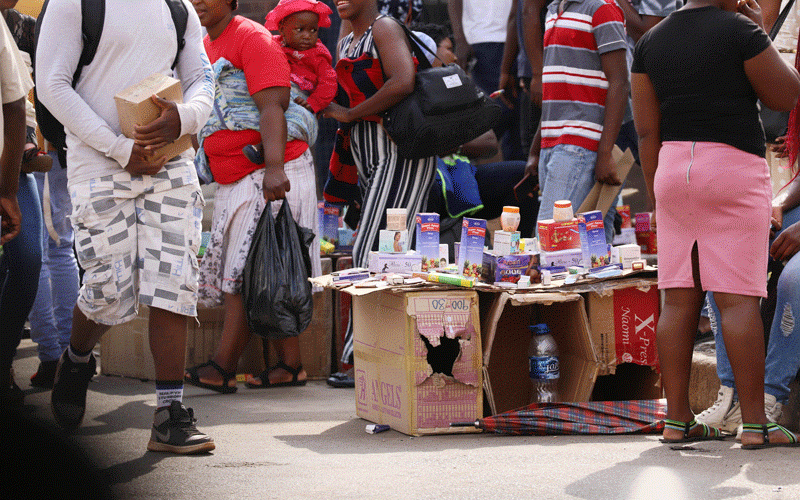
AFTER my recent visit to Geneva, Switzerland, where I had the opportunity to observe the United Nations Human Rights Council in session and engage with officials from the council, UN Human Rights office of the High Commissioner, ambassadors, journalists and non-governmental organisations, I was compelled to reflect on Zimbabwe’s human rights record. Over the coming weeks, I will examine the state of human rights in Zimbabwe.
Zimbabwe is a constitutional democracy, and its citizens are supposed to enjoy civil liberties, such as the freedoms of association, assembly, speech or expression, as guaranteed in the national constitution.
Articles 19 and 20 of the Universal Declaration of Human Rights, which promote the right to freedom of expression and peaceful assembly, are embedded in Zimbabwe’s constitution. Section 20 of the constitution clearly states that no person shall be prevented from exercising their freedom of expression, including the right to hold opinions and to receive and share information without interference. It guarantees the privacy of correspondence.
But is this a reality? The government’s handling of human rights has been deeply flawed, and state security forces have been flagged for violations by human rights bodies, both locally and internationally.
Over the years, the right to peaceful assembly and association, as outlined in Article 20 of the Universal Declaration, has been eroded in Zimbabwe.
It is particularly troubling that the Zanu PF nationalists, who fought a liberation war for freedom, are now the very ones denying citizens the rights they once championed.
The government’s intolerance of dissent is alarming. Voices of opposition are met with harsh repression. The media, which should serve as a watchdog, often finds itself operating under an atmosphere of fear, hesitant to fully expose the government’s shortcomings.
As a result, many journalists are left saying, “no story is worth dying for”. Yet, despite the hostile environment, the media has a key role to highlight some of the inadequacies of the government without fear or favour.
- SA should stop harassing foreigners
- Ziyambi digs in on Gukurahundi
- UN chief points to ‘massive’ rights violations in Ukraine
- ED’s govt weak: Mahere
Keep Reading
Zimbabwe has had a shambolic human rights record dating back to the 1980s with events such as the Gukurahundi genocide and recurring episodes of state-sponsored violence during elections.
The violence, often chilling in its scale, continues to cast a long shadow over the country.
Even the Freedom of the World Report 2024 placed Harare at 27 out of 100, and ranked it as a “not free” country.
Repressive and draconian laws, such as the Criminal Law Codification and Reform Act and the Private Voluntary Organisations Act, are designed to stifle freedoms of association and expression. These laws are anti-democratic and must either be repealed or reformed to align with the ideals of human rights and democracy.
Zimbabweans find it difficult to assert their rights due to fear of reprisal from the state.
Examples are abound, such as the prolonged detention of politician Job Sikhala without trial, and the ordeal faced by human rights defenders Namatai Kwekweza, Robson Chere and Samuel Gwenzi, who were forcibly removed from a departing flight at the Robert Gabriel Mugabe International Airport on July 31, 2024, held incommunicado and allegedly subjected to torture.
These actions reflect an alarming disregard for the rule of law and basic human dignity. They are inexcusable.
Zimbabwe’s history is filled with examples of state-sanctioned human rights abuses, from Robert Mugabe’s brutal response to the 1998 food riots to the horrors of Operation Murambatsvina in 2005, and the violence that marred the 2008 presidential election run-off.
When President Emmerson Mnangagwa assumed power in 2017, he promised that the Second Republic “will work towards ensuring the pillars of the state assuring democracy in our land are strengthened and respected”.
This signalled hope and a shift from Mugabe’s legacy of impunity. However, political activists are still being arrested and detained.
Forty-four years after independence, Zimbabwe’s democracy should have matured enough to allow its citizens to live in a society where human rights are fully respected.
It is not enough for these rights to exist only on paper — they must be a lived reality. The media, as the “Fourth Estate”, also has a responsibility to expose abuses where they occur, provided the reporting is factual and unbiased.
Journalists must be proactive, informed and committed to protecting the public’s right to know.











